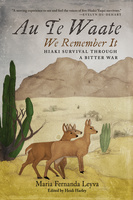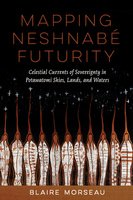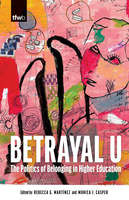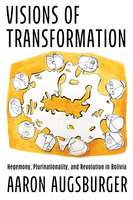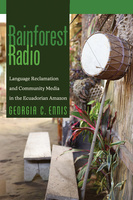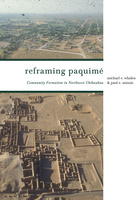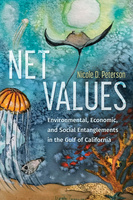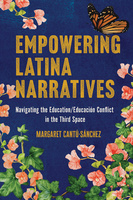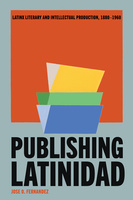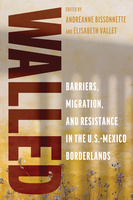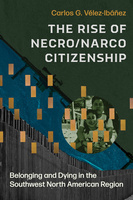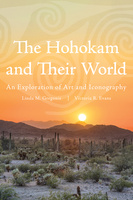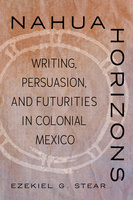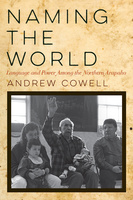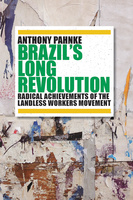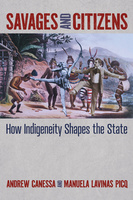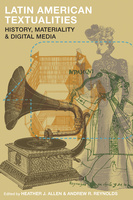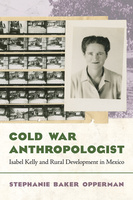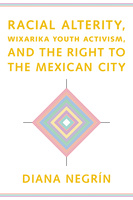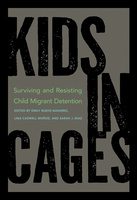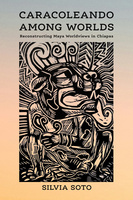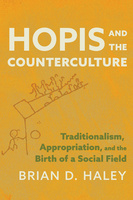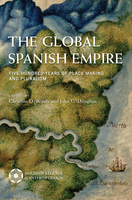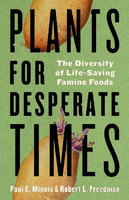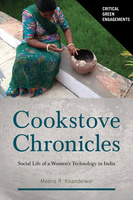The University of Arizona Press is the premier publisher of academic, regional, and literary works in the state of Arizona. They disseminate ideas and knowledge of lasting value that enrich understanding, inspire curiosity, and enlighten readers. They advance the University of Arizona’s mission by connecting scholarship and creative expression to readers worldwide.
Warfare and the Dynamics of Political Control
Warfare and the Dynamics of Political Control explores how warfare shapes the establishment, maintenance, and collapse of political institutions across diverse societies and historical periods. The chapters cover a wide range of topics and time periods to bring into focus the material and ideological drivers of conflict, offering deep insights into the complex interplay between violence and political power.
Au Te Waate / We Remember It
Hiaki Survival Through a Bitter War
Au Te Waate / We Remember It offers the personal narratives of Hiaki (Yaqui) individuals who endured the tumultuous period from 1900 to 1930, when they faced systematic attacks, conscription, deportation, and enslavement under Mexican government policies. Presented in both the original Hiaki language and English translation, these accounts offer an unparalleled glimpse into the lives of those who resisted and survived the era’s harsh realities, completely from the Hiaki perspective.
Mapping Neshnabé Futurity
Celestial Currents of Sovereignty in Potawatomi Skies, Lands, and Waters
Mapping Neshnabé Futurity is an essential read that offers a rethinking of how we conceive of futurity and sovereignty. Morseau’s interdisciplinary approach, blending anthropological research with literary critique, shows how counter-mapping projects both on the ground and in the skies reclaim space in the Great Lakes region—Neshnabé homelands—and are part of Anishinaabé/Neshnabé communities’ constellations of Indigenous futurities and stories of survivance.
Betrayal U
The Politics of Belonging in Higher Education
Betrayal U: The Politics of Belonging in Higher Education is a timely and incisive anthology edited by Rebecca G. Martínez and Monica J. Casper. This groundbreaking volume dives into the heart of institutional betrayal within academia, offering a diverse range of narratives, art, and poetry that address why belonging matters in higher education.
Visions of Transformation
Hegemony, Plurinationality, and Revolution in Bolivia
Visions of Transformation provides an analytical framework through which to interpret and understand the process of social change in Bolivia during the era of Evo Morales.
Rainforest Radio
Language Reclamation and Community Media in the Ecuadorian Amazon
Rainforest Radio follows Napo Kichwa media producers, performers, and consumers across a disrupted Amazon rainforest to understand the effects of different methods and media in language reclamation projects.
Reframing Paquimé
Community Formation in Northwest Chihuahua
Based on twenty-five years of survey and excavation work in the Casas Grandes region, this book presents an interpretation of Paquimé that differs greatly from the traditional ideas that have dominated the literature for the last half-century. This massive reinterpretation of the inner workings of the Casas Grandes region tackles the essential question of how Paquimé affected its near neighbors and also addresses the enigmatic end to the great city. An essential archaeological text, Reframing Paquimé will generate debate for a generation of future scholars of Northwest Mexico and the adjacent U.S. Southwest.
Net Values
Environmental, Economic, and Social Entanglements in the Gulf of California
In Net Values, Nicole D. Peterson provides new perspectives around fishing, conservation, and community well-being effectively. The book uses narratives and examples to challenge the current approaches toward rational individual choices and offers suggestions about better directions for understanding choice in real-world contexts.
Empowering Latina Narratives
Navigating the Education/Educación Conflict in the Third Space
In this groundbreaking book, author Margaret Cantú-Sánchez examines the nuanced experiences of Latinas/Chicanas within the U.S. educational system. Cantú-Sánchez introduces the concept of the education/educación conflict, where Latinas navigate the clash between home and school epistemologies under Anglocentric, assimilationist pedagogies.
Publishing Latinidad
Latinx Literary and Intellectual Production, 1880–1960
Publishing Latinidad argues that late nineteenth- and early twentieth-century Latinx authors and intellectuals engaged with alternative print cultures and literary genres to theorize about their racial and ethnic identities in relation to other nonwhite groups in the United States.
México Between Feast and Famine
Food, Corporate Power, and Inequality
As debates around food sovereignty, globalization, and sustainable development intensify globally, México Between Feast and Famine provides timely analysis that counters conventional narratives about Mexican cuisine. Historian Enrique C. Ochoa examines the rise of Mexico’s corporate food system, contextualized by the long history of colonialism. Ochoa also looks to the future, offering a vision of more equitable and sustainable food systems that prioritize social justice and community well-being.
Walled
Barriers, Migration, and Resistance in the U.S.-Mexico Borderlands
Thirty years after the first mile of border walls was constructed in the San Diego–Tijuana region, this volume invites readers to reflect on how the border has evolved and what durable impacts came from these initial fourteen miles of border walls—and the 1,940 miles constructed since.
The Rise of Necro/Narco Citizenship
Belonging and Dying in the Southwest North American Region
The Rise of Necro/Narco Citizenship offers a comprehensive exploration of the sociopolitical, economic, and cultural forces shaping the Southwest North American Region. Written by Carlos G. Vélez-Ibáñez, this work introduces the innovative concept of necro/narco citizenship, shedding light on how violence, militarization, and socioeconomic disruptions create unique forms of existence and identity on both sides of the U.S.-Mexico border.
Specters of War
The Battle of Mourning in Postconflict Central America
Specters of War explores mourning practices in postwar Central America, particularly in El Salvador and Guatemala. Sarmiento delves into the intricate dynamics of grieving through an interdisciplinary lens, analyzing expressions of mourning in literature, theater, and sites of memory. At the heart of this analysis is the contention over who has the right to mourn, how mourning is performed, and who is included in this process. Mourning is a battleground where different societal factions vie for the possibility of grieving the dead.
Las Horas Imposibles / The Impossible Hours
In Las Horas Imposibles / The Impossible Hours, Octavio Quintanilla takes us on a profound journey through borders and disquiet, love and longing, the unsaid and the unsayable. The perpetual search for wholeness is confounded and shadowed by all the brutal things intent on breaking us: distance, time, language. In these poems, the lyrical and concrete intertwine—complicating our notions of immigration, imagination, and identity. Culminating in a long poem that closes the collection, Las Horas Imposibles is an inevitable revelation of vulnerability amid quiet violence.
The Hohokam and Their World
An Exploration of Art and Iconography
The Hohokam and Their World explores how the Hohokam used art forms such as pottery, shell ornaments, carved stone, and rock imagery to convey their views of the world and their ideas about water, the Sonoran Desert, the ocean, travel, ancestors, and the cosmos.
Star Gazers
Finding Joy in the Night Sky
A flash, a single streak of light, is what sparked David Levy’s passion for astronomy more than sixty years ago. In this delightful collection of essays, Levy shares not only his love for the sky and stars, but also his love for language and literature. With the voice of a poet and the eye of a skilled, albeit amateur, astronomer, Levy takes us on a glorious adventure as large as the universe.
Trees Dream of Water
Selected and New Poems
In Trees Dream of Water Leo Romero offers up ancestral history and personal journeys through the landscapes of northern New Mexico. The poetry weaves together a lyrical exploration of identity, memory, and the natural world, inviting readers on a captivating journey of self-discovery that spans Romero’s career.
Nahua Horizons
Writing, Persuasion, and Futurities in Colonial Mexico
Nahua Horizons: Writing, Persuasion, and Futurities in Colonial Mexico challenges the notion that the Spanish erased Nahua culture. Ezekiel Stear’s bold new approach sheds light on ways in which Nahua people forged paths ahead in times of uncertainty and sweeping change.
Arizona Friend Trips
Stories from the Road
In this captivating travelogue, readers are invited to explore the Arizona known and loved by two friends through a blend of poetry, prose, and photography. Whether you’re planning your own Arizona adventure or simply yearning to wander from the comfort of home, Arizona Friend Trips promises to inspire, delight, and leave you longing for the open road.
The Documented Child
Migration, Personhood, and Citizenship in Twenty-First-Century U.S. Latinx Children's Literature
Looking at picture books and middle-grade and young adult literature written from 1997 to 2020, The Documented Child demonstrates how the portrayal of Latinx children has dramatically shifted and discusses how these shifts map onto broader changes in immigration policy and discourse in the United States.
Blue Corn Tongue
Poems in the Mouth of the Desert
Blue Corn Tongue is a like mixtape from a thirty-something Diné punk girl. It offers poetry about love, friendship, environmental destruction, and language loss.
Naming the World
Language and Power Among the Northern Arapaho
Brazil's Long Revolution
Radical Achievements of the Landless Workers Movement
Gerard P. Kuiper and the Rise of Modern Planetary Science
Heritage in the Body
Sensory Ecologies of Health Practice in Times of Change
Through storytelling, ethnography, and interviews, this volume examines how Indigenous Maya and Garifuna Belizeans—both in Belize and in the United States—navigate macro-level processes such as economic development, climate change, political shifts, and global health crises in the context of changes in their own lives. Employing an embodied ecological heritage (EEH) framework, this work explores the links between health and heritage. It offers insights into how heritage practices become embodied as ways to maintain and support happy, healthy lives.
Embodying Biodiversity
Sensory Conservation as Refuge and Sovereignty
This interdisciplinary volume argues for the importance of everyday sensuous conservation and its ability to grow diverse, livable worlds where human embodiment is understood as part of—not separate from—plant life. Contributors argue that the majority of biodiversity conservation worldwide is carried out not by large-scale conservation projects but by ordinary people engaging in sensory-motivated, caretaking relationships with specific plants.
Birds, Bats, and Blooms
The Coevolution of Vertebrate Pollinators and Their Plants
Birds, Bats, and Blooms provides an in-depth look at the ecology and evolution of two groups of vertebrate pollinators: New World hummingbirds and nectar-feeding bats and their Old World counterparts. Alongside engaging prose, this work includes fourteen color photographs of birds and flowers taken by the author.
Unsettling Mobility
Mediating Mi'kmaw Sovereignty in Post-contact Nova Scotia
Since contact, attempts by institutions such as the British Crown and the Catholic Church to assimilate indigenous peoples have served to mark those people as “Other” than the settler majority. In Unsettling Mobility, Michelle A. Lelièvre examines how mobility has complicated, disrupted, and—at times—served this contradiction at the core of the settler colonial project. Drawing on archaeological, ethnographic, and archival fieldwork conducted with the Pictou Landing First Nation—one of thirteen Mi’kmaw communities in Nova Scotia—Lelièvre argues that, for the British Crown and the Catholic Church, mobility has been required not only for the settlement of the colony but also for the management and conversion of the Mi’kmaq.
Savages and Citizens
How Indigeneity Shapes the State
This book takes the provocative view that Indigenous people have been fundamental to how contemporary state sovereignty was imagined, theorized, and practiced. By tracing indigeneity from European philosophers conceptualizing sovereignty during the Enlightenment to Indigenous President Evo Morales in Bolivia, this volume offers new analytical tools to explore indigeneity in contemporary world politics.
Latin American Textualities
History, Materiality, and Digital Media
Cold War Anthropologist
Isabel Kelly and Rural Development in Mexico
This book explores the changing nature of U.S.-Mexican relations, development programs, state efforts of assimilation, the field of anthropology, and gendered experiences in mid-twentieth-century Mexico through the international work of Dr. Isabel T. Kelly (1906–1983).
The Intimate Frontier
Friendship and Civil Society in Northern New Spain
Racial Alterity, Wixarika Youth Activism, and the Right to the Mexican City
Kids in Cages
Surviving and Resisting Child Migrant Detention
This book provides an interdisciplinary perspective of child migrant detention by bringing together voices from the legal realm, the academic world, and the on-the-ground experiences of activists and practitioners. The chapters explore the harms of detention while also looking at survival in and resistance to this violent institution.
Caracoleando Among Worlds
Reconstructing Maya Worldviews in Chiapas
This book focuses on the analysis of the contemporary literary movement of Maya writers of Chiapas. At the heart of this examination is a journey into the trajectory of this literary movement and its connection to the Zapatista Army of National Liberation (or EZLN) insurgency. This work shows two movements that are rooted in shared visions of rescuing, reclaiming, and recentering Maya worldviews.
Hopis and the Counterculture
Traditionalism, Appropriation, and the Birth of a Social Field
This book addresses how the Hopi became icons of the followers of alternative spiritualities and reveals one of the major pathways for the appropriation of Indigenous identities that exploded in the 1960s. Exploring the new social field that developed to spread these ideas, the book documents the biographies of Ammon Hennacy, Craig Carpenter, Frank Waters, and the Firesign Theatre, among others.
The Global Spanish Empire
Five Hundred Years of Place Making and Pluralism
The Global Spanish Empire tackles broad questions about indigenous cultural persistence, pluralism, and place making using a global comparative perspective grounded in the shared experience of Spanish colonialism. Through an expansive range of essays that look at Africa, the Americas, Asia, the Caribbean and the Pacific, this volume brings often-neglected regions into conversation.
Plants for Desperate Times
The Diversity of Life-Saving Famine Foods
Plants for Desperate Times is an introduction to the foods that have saved millions of lives during lethal food shortages. While not a field guide, it addresses questions about what famine foods are and why they are important.
Cookstove Chronicles
Social Life of a Women’s Technology in India
Cookstove Chronicles examines India’s handcrafted, wood-burning cooking stoves, the rural women who use them, and outsiders who try to improve them by engineering a range of “clean” cooking devices. Khandelwal adopts a transnational feminist, anthropological, and STS perspective to reimagine the humble mud stove as both villain and hero of this story and to suggest pathways for collaboration across radical disciplinary divides.



